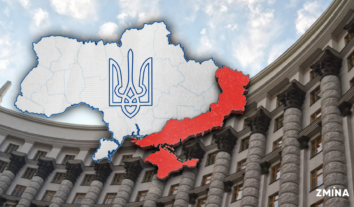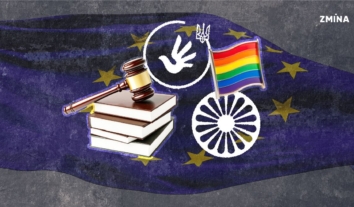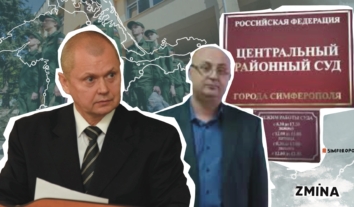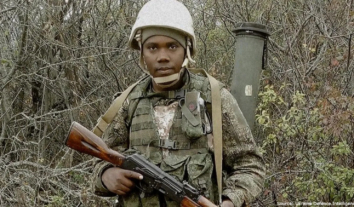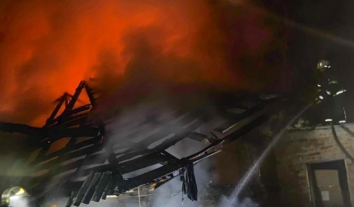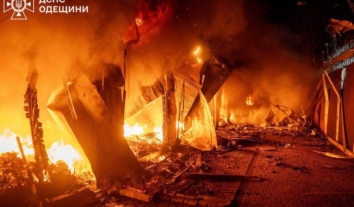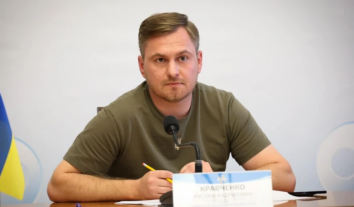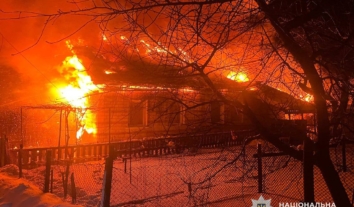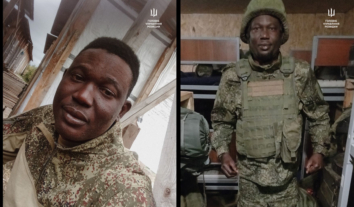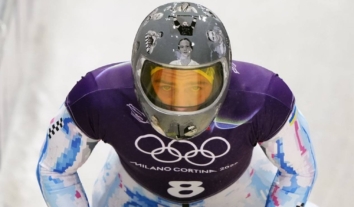Weekly news digest
This weekly news digest highlights the situation in the eastern Ukraine and on the Crimean peninsula, focuses on Ukraine’s economy and its challenges, and analyses Ukrainian and international statements as well as the international support provided to Ukraine.
During the week, the situation in the ATO area fully depended on Minsk peace talks results and the first attempts to implement the points agreed in the Belorussian capital. Within this period, the ATO positions were shelled 337 times (about 130 attacks after Feb. 15), resulting in 69 Ukrainian soldiers killed (19 killed after Feb. 15) and 178 injured (73 of them after Feb. 15). Civilian death toll reached 28, another 112 got injured.
The intensity of the shelling has declined after new Minsk agreement had been signed and the ceasefire came into force on Feb. 15. Nevertheless, the escalating hostilities were observed near Mariupol and Debaltseve as Luhansk People’s Republic and Donetsk People’s Republic, in a clear violation of the agreements reached, launched an attack on this key rail hub in the eastern Ukraine. Ukrainian Ministry of Defense said they are not ready for withdrawal of the heavy weaponry because «the pre-condition for withdrawal of heavy weapons is fulfilling Point One of the Minsk agreements — the cease-fire. »
Petro Poroshenko has held a telephone conversation in the “Normandy format” to stress the importance of achieving a comprehensive ceasefire, one of the main points of the Minsk Protocol. The accord discloses in detail the sequence of steps the parties are to take to bring the peaceful resolution to the conflict. The agreement, endorsed by the UN Security Council, presupposes full implementation of the points agreed by the end of 2015. The 13-point accord is conceived in such a way that it is not possible to move to the next point without fulfilling the previous one.
Certainly, a new historic Minsk agreement, reached in the “Normandy format”, appeared to be the most important event of the week. However, the majority of Ukrainian officials already doubt the possibility of the implementation of the accord. Such conclusions can be drawn from the statements made by P. Poroshenko, A. Yatsenyuk, B. Hroisman, and P. Klimkin. If the second wave of “Minsk agreements” is not implemented, Ukraine will expect an extremely tough reaction of the entire civilized world, said the Minister of Foreign Affairs of Ukraine. Ukraine will introduce martial law all over the country if the accord is violated. Ukraine asks UN to consider the deployment of its peacekeeping forces in the temporarily occupied territories. In particular, the National Security Council has approved the appeal to the UN and the EU about peacekeeping mission deployment to ensure peace and security in the area.
With tension and anxiety, the entire civilized world is now watching how the situation around the implementation of the agreement develops. The majority of the world leaders and politicians have reasonable doubts about the accord implementation. With concern, A. Merkel said that despite hopes for peace, there are no illusions about the fragile ceasefire. She stressed the fact that the situation in the eastern Ukraine is very unstable, and the path to comprehensive peace will be extremely difficult. F.-V. Steinmeier said that the Minsk agreement will not solve the conflict, but it can be a step that will lead to a new political impetus after months of violence. While D. Cameron said he considers “appeasement” policy towards Russia, taking into consideration its escalating military activity in the eastern Ukraine, to be a mistake, D. Grybauskaite warned that the agreement is quite weak. The Vice-President of the European Parliament R. Charnetsky criticized the Chancellor and the French President for, as he said, sacrificing Ukraine for Germany’s and France’s own economic interests. He pointed out that such peace appears to be far more favorable to Moscow than Kyiv because it de facto politically authorizes Russian Federation’s achievements. According to him, some European countries wanted to gain “peace at all costs” and they managed to succeed in it. Furthermore, he claimed that Russia-backed rebels will not stop on what they have already achieved.
Ukraine expects Europe and the world to provide the country with defense weapons and to impose further sanctions against Russian Federation. The democratic world also warns of a high probability of further toughest sanctions against the aggressor state. In particular, G7 leaders are ready to take appropriate actions against those who will violate the Minsk Protocol. This position was supported by Angela Merkel, Laurent Fabius and Federica Mogherini. Poland calls upon the international community to reconsider the issue of supplying modern military defensive weapons to Ukraine (B. Komorowski, G. Schetyna). Bronisław Komorowski emphasized that one cannot exclude a possibility of Poland supplying lethal weaponry to Ukraine because it would mean a voluntary refusal to have any means of influence on the situation. However, according to him, the USA and other countries do no more than just talking about the possible supply of lethal defensive arms.
Russia continues to blame Ukraine for violating the Minsk Protocol, escalating the conflict, and considers regaining full control over the common border to be “unrealistic”. In particular, this is what Sergey Lavrov’s statement centered around. Moscow still insists on Ukraine maintaining direct contacts with the terrorist leaders. Meanwhile, Vladimir Putin voiced rebels’ demand – Ukrainian troops, encircled near Debaltseve, have to surrender. Along with this, the Press Spokesman for the President of Russian Federation Dmitry Peskov reminded that Russia is just a guarantor of the Ukrainian conflict settlement, not a party of it, thus you cannot demand from Russia full implementation of the ‘Package of measures for the Implementation of the Minsk Agreements”.
At the same time, Russia again begins threatening Ukraine, Europe and the USA. The following Moscow’s messages were voiced by LPR and DPR leaders: “Another aim of Russian aggression machine is Kharkiv” (Alexander Zakharchenko), “LPR does not want to remain the part of Ukraine” (Igor Plotnitsky). At the same time, S. Naryshkin, the speaker of the Russian Duma, threatened a great war on 800 millions of Europeans. He also added that a group of European countries started a new “cold war”. However, he thinks that the “global international system is now undergoing a transformation and changing from a unipolar to a multipolar, and US hegemony is declining”.
Experts think that Crimea now economically resembles a “very remote, undeveloped Russian village” (pay cut for doctors and teachers, Kerch ferry service disruptions, inability to repay Ukrainian depositors, local wine industry experiencing significant difficulties). Taking into consideration economic crisis Crimea has slipped into, the idea of turning the peninsula into a military outpost is becoming more obvious (the Black Sea Fleet started drills, testing troops’ combat readiness, establishment of military settlements, a build-up of armored vehicles on Ukraine’s border, plans to rebuild military infrastructure). The human-rights situation is complicated (private companies’ illegal nationalization, persecution and kidnapping of Crimean-Tatars and Ukrainian activists, searches of TV channels, persecution of Muslims, Catholics, Orthodox and other communities opposing Russia’s policy).
Ukraine’s economy is characterized by the following tendencies: 1) deterioration of macroeconomic indicators (GDP to drop by 5,5%, inflation rate – 26%, increasing level of unemployment and reduction of domestic market, declining foreign investments, hryvnia collapse and bank system crisis, increasing deficit of state budget); 2) improving situation with foreign loans and financial assistance (IMF has agreed to give Ukraine $17,5bn within 4 years with first tranche of $4,8bn to come in March ; overall, Ukraine will get $40bn assistance from international financial organizations and Western governments; 5) significant support from other creditors; issues about credit obligations concerning the increase the state debt limit by UAH 218bn resolved and possible state debt restructuring; 3) several laws adopted (implementation of subsidy programs and financial assistance to the population, deregulation of business, simplification of public administration, introduction of additional import tax, cancellation of import duty on hybrid cars) and the reform process has started (signed memorandum on the creation of the Project Management Office for coordination development and implementation of reforms in Ukraine, the establishment of Advisory International Council of Reforms, led by Saakashvili); 4) economy’s reorientation on war and mobilization needs; 5) economy’s gradual reorientation on European markets (up to 36%).
An immense international support of Ukraine is still provided by Canada (financial and military-technical support), UK (handing over armored vehicles), Poland (handing over military uniforms), Czech Republic (humanitarian aid), Denmark (financial aid to the refugees), Bulgaria (increased interregional cooperation), and Slovenia (cooperation in security sector). On the level of international organizations, support to Ukraine was provided by the IMF, the World Bank ($2 bln support), EBRD (financing the Project Management Office for coordination development and implementation of reforms in Ukraine) and the EU (€15mln from the European Commission).
There are serious doubts whether new Minsk agreement will contribute to the peaceful settlement of the conflict, especially with Russia and its rebels constantly violating the accord. But as Ukraine marks the first anniversary of Maidan killings and commemorates the Heavenly Hundred, the following question arises – how much time will it take to bring peaceful resolution to the conflict and, more importantly, what will be the cost?
The materials used for the weekly news digest include the official websites of the President, the National Security and Defence Council, the Ministry of the Foreign Affairs of Ukraine and the Government, Ukrainian Internet newspaper “Ukrainska Pravda” (“Ukrainian Truth”), Dmytro Tymchuk’s blog “Informatsiinyi sprotyv” (“Informational Resistance”), Ukrainian news agency UNIAN, Ukrainian news program TSN, weekly political magazine “Korespondent” ( “Journalist”), weekly political, economical and the arts magazine “Ukrainskyi Tyzhden” (“Ukrainian week”), etc.
Foto VOA



